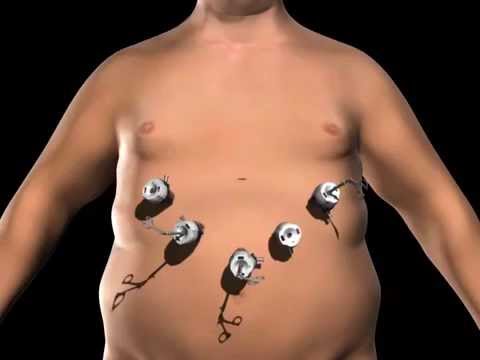How is Medical Assisting Different from Other Allied Health Professions?
Contents [show]
Medical Assisting is a unique allied health profession that offers a wide range of responsibilities and opportunities. If you’re considering a career in medical assisting, it’s important to understand how it differs from other allied health professions.
Checkout this video:
What is a Medical Assistant?
Medical assistants are key members of the healthcare team, performing a variety of clinical and administrative tasks to keep the office running smoothly. They are often the first point of contact for patients and play an important role in educating them about their health.
While their duties vary depending on the type of healthcare facility they work in, Medical Assistants typically perform some or all of the following tasks:
– Checking patients in and out
– Collecting and recording patient medical histories
– Scheduling appointments
– handling insurance forms
– Preparing patients for exams
– Assisting with minor surgical procedures
– Drawing blood and administering injections
– Performing basic lab tests
– Answering patient questions
What are the Duties of a Medical Assistant?
Medical assistants are multi-skilled health professionals specifically trained to work in outpatient settings such as medical offices and clinics. Their job duties vary depending on the size and location of their employer, but they generally fall into one of three categories: administrative, clinical, or a combination of both.
Medical assistants who perform mainly administrative duties might be responsible for answering phones, greeting patients, scheduling appointments, handling correspondence, billing and coding insurance forms, and transcribing physicians’ orders. Clinical duties might include taking medical histories and recording vital signs, explaining treatment procedures to patients, preparing them for examination, assisting the physician during the exam, collecting and preparing laboratory specimens, performing basic laboratory tests on-site, helping to administer medications and injections, drawing blood, removing sutures (stitches), and changing dressings.
How is Medical Assisting Different from Other Healthcare Professions?
Medical assistants are uniquely qualified to perform both administrative and clinical duties, whereas other allied health professions focus primarily on either clinical or administrative tasks. This makes medical assistant jobs both versatile and in-demand.
Administrative duties for medical assistants may include answering phones, scheduling appointments, verifying insurance coverage, and coding and billing patients. Clinical tasks may include taking patient vital signs, performing electrocardiograms, collecting lab specimens, and delivering instruction on self-care and wound care.
In addition to these responsibilities, medical assistants may also be responsible for handling supplies and assisting with minor office surgeries such as stitches and wound closures.
What are the Educational Requirements for Medical Assistants?
Medical assistants are allied health professionals who perform administrative, clinical, and basic lab procedures under the supervision of licensed health care providers. They are a vital part of the health care team and play an important role in the efficient operation of medical practices and clinics.
Most medical assistants have completed a postsecondary education program that typically lasts one year or less. Some programs lead to a certificate or diploma, while others result in an associate’s degree. A small number of medical assistants earn bachelor’s degrees, but this is not usually necessary for employment.
While there are no formal education requirements for medical assistants in some states, most employers prefer to hire candidates who have completed an accredited program. Employers also value work experience, so internships or externships can be helpful in landing a job.
What is the Job Outlook for Medical Assistants?
The job outlook for medical assistants is excellent. According to the U.S. Bureau of Labor Statistics, employment of medical assistants is expected to grow 23 percent from 2019 to 2029, much faster than the average for all occupations.
What are the Salary Expectations for Medical Assistants?
Medical assisting is a popular profession within the allied health field, and for good reason. Medical assistants are essential members of the healthcare team, providing support to both patients and providers. They are involved in everything from taking medical histories and scheduling appointments to handling insurance paperwork and Sterilizing equipment. If you’re thinking about pursuing a career in medical assisting, you may be wondering how it stacks up against other allied health professions. Here’s a look at some of the key ways medical assisting is different from other similar fields.
Medical assisting is one of the few allied health professions that does not require a college degree. Most programs can be completed in as little as one year, making them a great option for those who want to start working quickly. While there are some positions that may require additional certification or training, most entry-level medical assistant jobs only require a high school diploma or equivalent.
The salary expectations for medical assistants are also fairly low when compared to other allied health professions. The median annual salary for medical assistants is just over $30,000, although this number will vary depending on factors such as experience, skills, and location. In comparison, registered nurses earn a median salary of over $70,000 per year, while physical therapists make an average of $87,000 annually. However, it’s important to note that salaries for all allied health professionals are on the rise due to the increasing demand for these services.
What are the Career Progression Opportunities for Medical Assistants?
Medical assistants perform many different duties within healthcare facilities. Their responsibilities can range from clerical duties such as answering phones and scheduling appointments, to more direct patient care tasks such as taking vital signs, administering injections, and assisting with minor outpatient procedures. In some states, medical assistants may even be allowed to perform certain diagnostic tests, such as electrocardiograms (EKGs) or urinalysis.
Due to the wide range of responsibilities that medical assistants have, there are many opportunities for career progression within this field. Some medical assistants may choose to specialize in a particular area of patient care, such as pediatrics or geriatrics. Others may become certified in a specific task, such as phlebotomy or medical billing and coding. Still others may elect to further their education and become licensed practical nurses (LPNs) or registered nurses (RNs).
The possibilities for career progression are nearly endless for medical assistants. With hard work and dedication, there is no limit to how far you can go in this rewarding profession!
What are the challenges faced by Medical Assistants?
Medical Assisting is a unique and demanding profession that requires a special blend of skills, knowledge, and values.
Compared to other allied health professions, medical assistants face a number of challenges in their work. These challenges include:
-The need to be proficient in both clinical and administrative tasks
-The need to be adept at working with both patients and healthcare providers
-The need to maintain a high level of confidentiality
-The need to be flexible and adaptable to changing circumstances
What are the benefits of being a Medical Assistant?
There are many benefits to being a Medical Assistant. First and foremost, Medical Assistants are in high demand. They are needed in nearly every medical facility, from hospitals to clinics to private physician offices. This high demand means that there are always job openings for Medical Assistants, and they usually receive good benefits and salaries.
Another benefit of being a Medical Assistant is that it is a very versatile profession. Medical Assistants can work in a variety of settings, and their duties can vary greatly depending on the needs of their employer. For example, some Medical Assistants may be responsible for administrative tasks such as scheduling appointments and handling insurance paperwork, while others may focus on clinical tasks such as taking patient vital signs and assisting with examinations.
Being a Medical Assistant is also a great way to get started in the medical field. Many Medical Assistants go on to pursue further education and training in order to become licensed practical nurses, registered nurses, or even physicians. So if you’re interested in a career in healthcare, becoming a Medical Assistant is a great first step!
10)How can I become a Medical Assistant?
Medical Assisting is a exciting and growing profession within the allied health field. Becoming a medical assistant is a great way to start a career in healthcare, or to make a change if you are already working in the field. If you are interested in becoming a medical assistant, there are a few things you should know.
First, it is important to understand what medical assistants do. Medical assistants are multi-skilled professionals who provide direct patient care as well as administrative support within healthcare facilities. They may perform tasks such as taking vital signs, administering injections, preparing patients for examinations, and answering patient questions. In addition, medical assistants may also be responsible for tasks such as scheduling appointments, maintaining medical records and billing and coding insurance forms.
Becoming a medical assistant requires both formal education and on-the-job training. Most medical assistants have at least a high school diploma or equivalent, although some programs may require additional coursework in subjects such as biology and anatomy. Many community colleges offer certificate or diploma programs in medical assisting, which can be completed in about one year. These programs often include both classroom instruction and hands-on clinical experience. Some states also require medical assistants to be licensed or certified; requirements vary by state but typically include passing an exam administered by a professional organization such as the American Association of Medical Assistants or the National Healthcare Association.
If you are interested in becoming a medical assistant, there are many resources available to help you get started. You can learn more about the profession through professional organizations such as the American Association of Medical Assistants or the National Healthcare Association. You can also research certification requirements through these organizations or through your state’s licensing board. In addition, many community colleges offer information sessions or open houses where you can learn more about their programs and speak with current students and faculty members.







